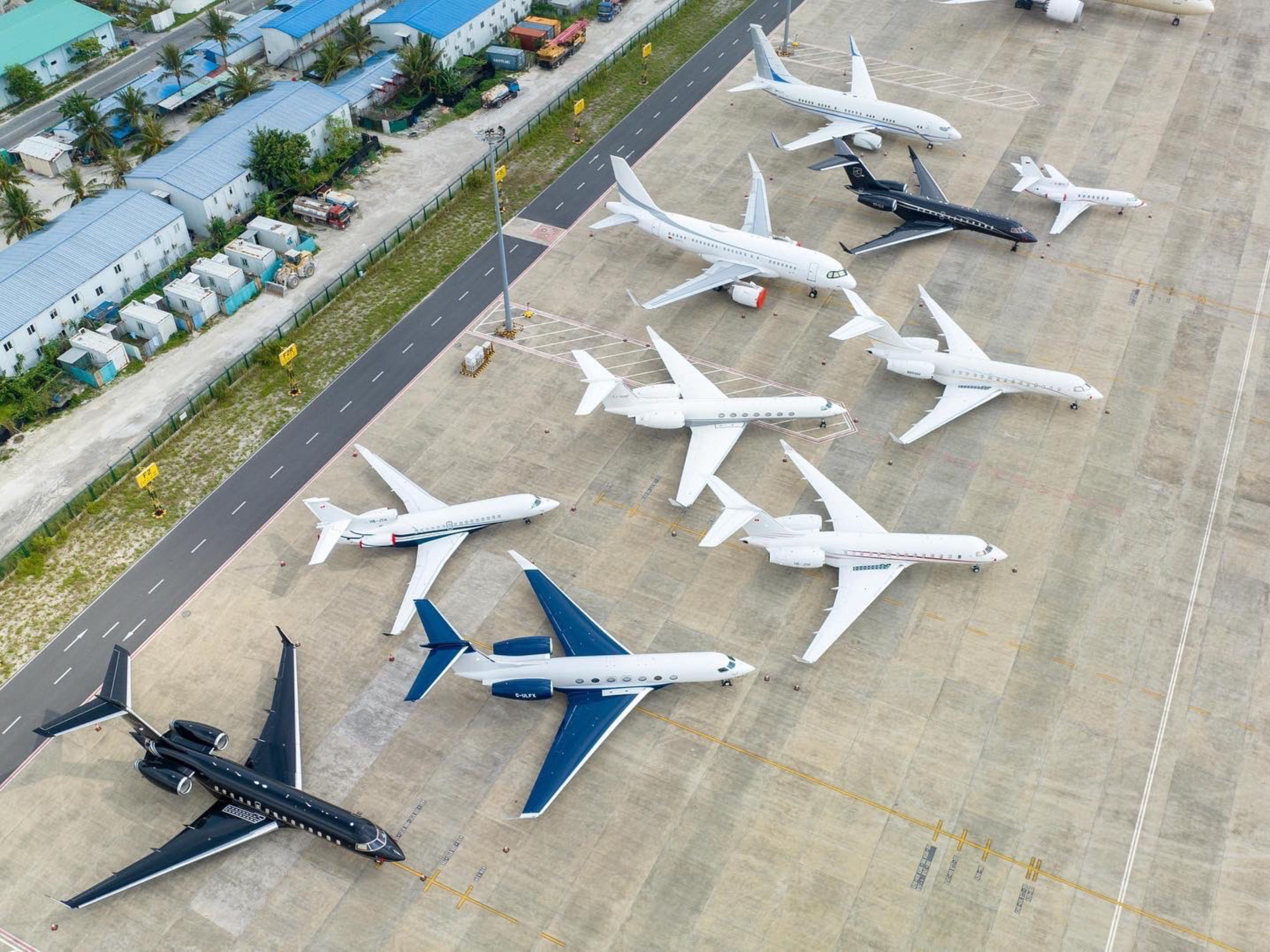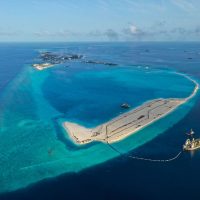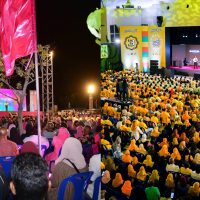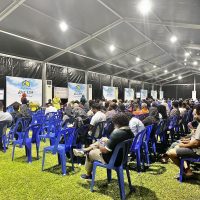The groundbreaking ceremony was held for a ‘Co-Living Housing Project’ in Hulhumalé intended for students and single professionals to “co-share” flats.
The design and construction of a basement and 14-storey building with single and twin-sharing rooms was awarded to the Hong Kong-based Rotime Engineering and Technology. The apartment complex will have a laundry service, outdoor gym, pantry and a common kitchen on each floor, according to the Housing Development Corporation.

The Maldives welcomed the Chinese government’s decision to end Covid-19 travel restriction on 8 January 2023, paving the way for the return of Chinese tourists after a nearly three-year hiatus.
China was the largest source market before the pandemic with 284,029 holidaymakers in 2019, representing a 17% market share.
“The Maldives looks forward to the resumption of flights between the two countries in the near future, and is eagerly awaiting to welcome back Chinese tourists to the Maldives,” the Maldives foreign ministry said.
The Maldives remains a popular destination and Chinese tourists are expected to start arriving in large numbers but direct scheduled flights could take some time to resume, China’s Ambassador to the Maldives, Wang Lixin, told newspaper Mihaaru. “China’s Eastern Airlines is already in preparation,” she added, also noting plans by national carrier Maldivian to resume direct flights.
After reopening borders, China will no longer require quarantines for returning travellers. A negative test result within 48 hours of departure will however be required from travellers to China.
The number of Chinese tourists visiting the Maldives grew exponentially after 2010. Despite dwindling figures since peaking in 2014 with a 30% market share, China remained the single highest supplier of tourists to the country until the pandemic struck in early 2020.
The number of Chinese tourists sharply increases during China’s “super Golden Week” early in the year – an eight-day period combining two public holidays, including the Lunar New Year. This year’s Chinese New Year falls on 22 January.
China was the world’s largest outbound travel market in 2019 with US$255 billion annual global spending by Chinese tourists. The lifting of travel restrictions has spurred a surge in bookings as Asia’s tourist hotspots prepare for a boom and airlines seek to quickly ramp up capacity, Reuters reported.

The finance ministry re-invited bids to build 30-bed hospitals on seven islands. As proposals submitted after the first announcement in April exceeded the budget for the project, building designs were revised to lower construction costs, state media reported.
The government has applied for financing from the Kuwait Fund for Arab Economic Development (KFAED) and intends to earmark part of the funds for the construction of the new hospitals, according to the ministry.

The highest number of tourist arrivals on a single day was recorded with 7,621 holidaymakers. The daily average of 5,764 tourists between 1 to 26 December was the highest average in 2022, surpassing the daily average of 5,388 in December 2019.
A total of 228 runway movements, including 104 international flights, 104 domestic flights, and 20 general aviation (private jets), on 22 December was also a new record since the opening of the 3,400 meter, code-F runway in October.
On 20 December, the Maldives welcomed the 1.6 millionth tourist of the year, achieving the government’s optimistic target for 2022 with a week to spare. Total arrivals of 1,641,104 tourists as of 26 December was just -1.8% below pre-pandemic levels and 27% higher than last year.
India remains the top source country with a 14% market share, followed by Russia, UK, Germany, Italy, United States, France, Spain, South Korea and Switzerland.

At its annual general meeting, the State Electricity Company decided to pay out a dividend of MVR22 million (US$1.4 million) to the government.

The tourism ministry added a new island and lagoon to the list of uninhabited islands to be leased for resort development under the government’s cross-subsidy policy.
The current administration plans to lease islands, lagoons or plots of land for tourism in exchange for investment in infrastructure projects.
“The total investment proposed or committed under this model shall be set-off against the acquisition cost and/or the declared land rent of the island/land/lagoon allocated for tourism under this model,” according to the ministry of national planning, housing and infrastructure.
With the addition of Dhekennafaru island and Dhigaru lagoon in Noonu Atoll, seven islands and a lagoon are now on offer for potential investors. The other islands are Shaviyani Kudalhaimendhoo, Noonu Kunnamalei, Lhaviyani Meyyafushi, Thaa Dhiffushi, Thaa Kalhufahalafushi, and Gaafu Alifu Fulagi.
Earlier this month, the cross-subsidy rules were revised to hand over islands or lagoons after an initial payment of US$1 million. The regulations previously required full payment of a project’s funding.
The change was made after the infrastructure ministry signed financing agreements with four companies to build new domestic airports. A dozen contractor financing proposals were submitted after the minimum financing amount was reduced from US$5 million to US$3 million. The bid announcement was made for the third time last August.
New airports are to be developed on the islands of Haa Dhaalu Makunudhoo, Shaviyani Bilehfahi, Baa Thulhaadhoo, Thaa Vilufushi, Faafu Magoodhoo and south Raa Atoll (location to be decided upon).
Earlier this month, the government invited expressions of interest or proposals to develop a residential city in the Giraavaru lagoon near Malé. A minimum financing requirement was set at US$5 million.
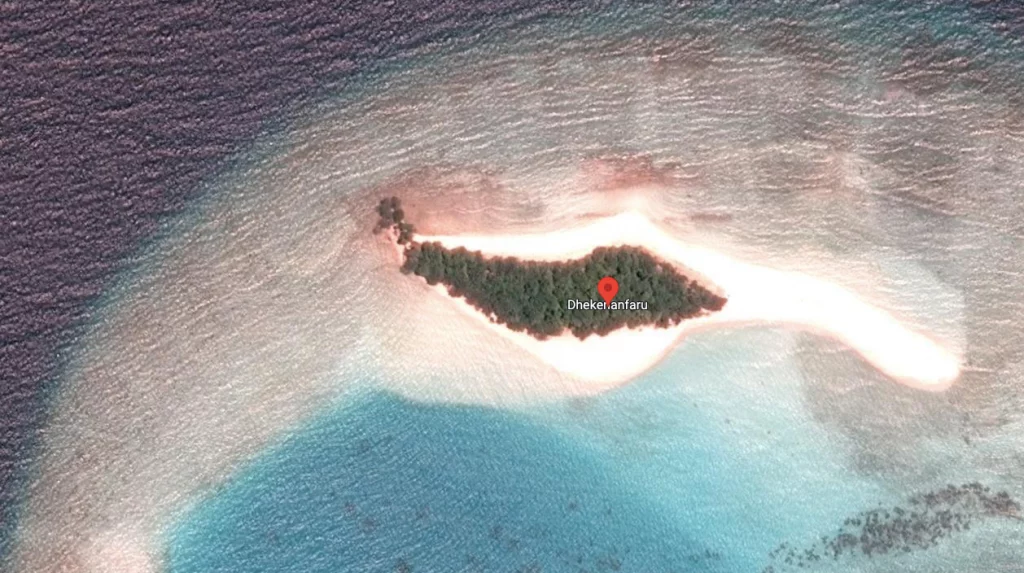
“Having regard to the present regulatory challenges, in the best interests of the company and its shareholders,” Dhiraagu announced the discontinuation of the DhiraaguTV cable television service after the Maldives Broadcasting Commission rejected an application to renew its rebroadcasting license, which is due to expire on 29 January.
In January 2022, the regulator enacted new rebroadcasting regulations with a requirement for 100% Maldivian ownership, prohibiting companies with foreign shareholders from providing rebroadcasting services. Bahrain’s Batelco owns a majority stake of Dhiraagu with 41% of shares held by the Maldives government.
Dhiraagu announced that it has agreed to provide its IPTV/OTT network as a service to SS Network, a newly licensed rebroadcaster owned by the Sun Siyam Media company. Existing DhiraaguTV customers can “conveniently opt-in for the new rebroadcaster service” with further details to be communicated in the coming weeks.




